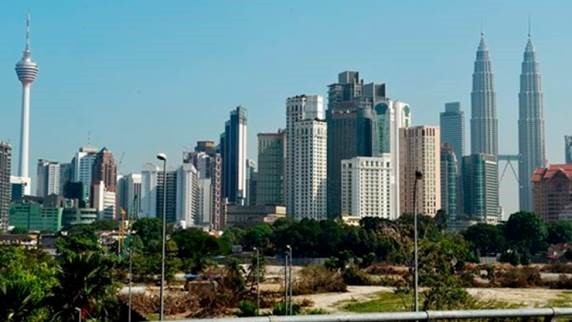
PETALING JAYA: Tightening the standard operating procedures (SOP) is preferable to a movement control order (MCO) to tackle the latest upsurge in Covid-19 infection.
This is the consensus reached among big and small businesses, economists and a psychologist.
Many fear that a full lockdown across the country will wipe out more businesses and, therefore, people’s livelihood.
The latest upswing in the number of new cases daily has effectively dashed hopes that the pandemic will be brought under control by the end of this year or the early months of 2021.
While the announcement by Senior Minister (Defence) Datuk Seri Ismail Sabri Yaakob that there are no plans yet for a full lockdown has raised concern, many stakeholders are hanging on to hopes that the government will allow economic activities to continue, albeit at a subdued pace.
Malaysian Employers Federation (MEF) executive director Datuk Shamsuddin Bardan expressed fears that another lockdown would break the proverbial camel’s back and wipe out many more businesses and jobs.
He told theSun yesterday that third quarter economic data already showed promise of a recovery.
“The unemployment rate has eased from 4.8% in June to 4.7% in July. However, this may be eroded by the alarmingly high level of new Covid-19 cases.”
He said the situation would be better managed with lockdowns only in localities that report a high number of cases rather than a blanket MCO for the whole country.
He said banks should be more lenient on lending to small and medium enterprises and the moratorium on loan repayments should be continued.
He said there should be policies and procedures to enable business and day-to-day activities to continue smoothly.
Hawkers and Petty Traders Association of Malaysia president Datuk Seri Rosli Sulaiman said it has been tough surviving the first round of MCO.
“Business for petty traders has declined by at least 30%, thanks to the impact of the first MCO. A second round will worsen the situation,” he told theSun.
Economist Datuk Dr Rajah Rasiah said the best option for now is to tighten the SOP.
“There’s fear now that the economy will go into recession. I don’t see how the gross domestic product can start seeing growth yet,” he said.
On the other hand, he said an MCO might not be necessary yet but stricter observation of requirements such social distancing is essential.
Meanwhile, to help business, the government can get banks to lower interest rates to spur the growth of new industries that have the potential to thrive in the new normal.
Rajah, who is professor of Economics at the Asia-Europe Institute in Universiti Malaya, said businesses should also take the initiative to transform in line with Industrial Revolution 4.0 by, among other things, adopting new technology.
“The new technology will help to limit human contact and enable businesses to cultivate stronger cooperation, thus helping them to fight the pandemic collectively rather than individually.
He also stressed that there is a need to expand production of essential goods and increase support for agriculture.
Psychologist Dr Fauziah Mohd Saad of Universiti Pendidikan Sultan Idris noted that when there is economic instability, stress and anxiety levels will rise.
“Humans are social beings by default. Another lockdown in the midst of an unstable economy will take a heavy toll on the people’s mental health,” she said.
“Business for petty traders has declined by at least 30%, thanks to the impact of the first MCO. A second round will worsen the situation,” he told theSun.
Economist Datuk Dr Rajah Rasiah said the best option for now is to tighten the SOP.
“There’s fear now that the economy will go into recession. I don’t see how the gross domestic product can start seeing growth yet,” he said.
On the other hand, he said an MCO might not be necessary yet but stricter observation of requirements such social distancing is essential.
Meanwhile, to help business, the government can get banks to lower interest rates to spur the growth of new industries that have the potential to thrive in the new normal.
Rajah, who is professor of Economics at the Asia-Europe Institute in Universiti Malaya, said businesses should also take the initiative to transform in line with Industrial Revolution 4.0 by, among other things, adopting new technology.
“The new technology will help to limit human contact and enable businesses to cultivate stronger cooperation, thus helping them to fight the pandemic collectively rather than individually.
He also stressed that there is a need to expand production of essential goods and increase support for agriculture.
Psychologist Dr Fauziah Mohd Saad of Universiti Pendidikan Sultan Idris noted that when there is economic instability, stress and anxiety levels will rise.
“Humans are social beings by default. Another lockdown in the midst of an unstable economy will take a heavy toll on the people’s mental health,” she said.
Source: https://www.thesundaily.my/local/economy-comes-first-GI4578558

